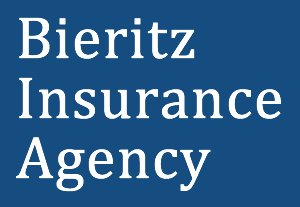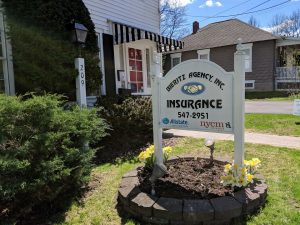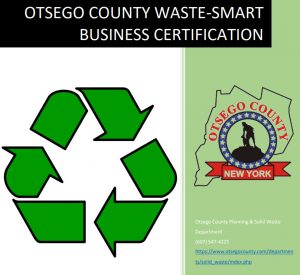Protecting Your Enterprise and Your Dreams
Starting and running a small business is a dream come true for many entrepreneurs. However, along with the excitement of entrepreneurship comes the responsibility of safeguarding your business against unexpected challenges. Small business insurance is an essential tool to protect your enterprise and your dreams from risks that could otherwise be financially crippling. In this article, we’ll overview the importance of business insurance and provide tips for selecting the right coverage to protect their enterprise.
 Understanding the Importance of Small Business Insurance
Understanding the Importance of Small Business Insurance
1. Financial Protection
Small business insurance is primarily designed to provide financial protection for your business. It shields your company from the financial fallout of unexpected events, such as accidents, property damage, liability claims, and more. Without insurance, you may be personally liable for these costs, which could jeopardize your business and personal assets.
2. Legal Requirements
In many cases, carrying certain types of insurance is a legal requirement for businesses. For example, workers’ compensation insurance is mandatory in most states to cover employee injuries and illnesses. Failing to comply with these regulations can result in penalties, fines, or even the closure of your business.
3. Credibility and Trust
Having the right insurance coverage can enhance your business’s credibility and trustworthiness. Clients, partners, and customers are more likely to work with a business that demonstrates its commitment to responsible risk management through insurance coverage.
4. Employee Protection
If you have employees, business insurance is crucial for their protection. Workers’ compensation insurance provides financial support for employees who are injured or become ill on the job. This coverage ensures that your employees receive the care and compensation they need while protecting your business from potential lawsuits.
5. Business Continuity
Insurance can play a vital role in business continuity. In the event of a disaster or unexpected event, having the right coverage can help your business recover more quickly, reducing downtime and financial losses.
Selecting the Right Small Business Insurance Coverage
Choosing the right insurance coverage for your small business can be complex, but it’s essential to ensure you’re adequately protected. Here are some key considerations and tips for selecting the right coverage:
1. Identify Your Risks
Start by identifying the specific risks your business faces. These can vary widely depending on your industry, location, and the nature of your operations. Common risks include property damage, liability claims, theft, data breaches, and natural disasters.
2. Assess Your Business Needs
Consider your business’s unique needs when selecting insurance coverage. For example:
- General Liability Insurance: This is essential for most businesses and provides protection against claims of bodily injury, property damage, and advertising injury.
- Property Insurance: Protects your business property, including buildings, equipment, inventory, and signage, from perils like fire, theft, vandalism, and certain natural disasters.
- Workers’ Compensation Insurance: Mandatory in many states, it covers medical expenses and lost wages for employees who are injured or become ill on the job.
- Professional Liability Insurance: Also known as errors and omissions insurance, it’s crucial for service-based businesses and protects against claims of professional negligence or mistakes.
- Cyber Liability Insurance: Provides coverage for data breaches and cyberattacks, which are becoming increasingly common in the digital age.
3. Consult an Insurance Professional
Consider working with an experienced insurance agent or broker who specializes in business insurance. They can assess your specific needs, recommend appropriate coverage, and help you navigate the complexities of insurance policies.
4. Bundle Policies
Bundling multiple insurance policies with the same provider can often lead to cost savings. This can include combining general liability, property, and other coverage into a business owner’s policy (BOP) for convenience and potential discounts.
5. Understand Policy Limits and Deductibles
Pay attention to policy limits, which determine the maximum amount the insurance company will pay for covered claims. Also, understand your deductible—the amount you must pay out of pocket before insurance coverage kicks in. Balancing these factors is crucial for managing premiums and coverage.
6. Regularly Review and Update Coverage
Your business’s insurance needs can change over time due to factors like growth, new offerings, or changes in the business environment. Regularly review your coverage with your insurance professional to ensure it remains adequate and up to date.
Small business insurance is not just a financial safeguard; it’s an essential tool for ensuring the longevity and success of your enterprise. By understanding the importance of business insurance and selecting the right coverage tailored to your business’s unique needs, you can protect your business from unexpected risks and focus on achieving your entrepreneurial dreams with peace of mind. Don’t wait until a crisis occurs—invest in the protection of your business today. Call our team at 607-547-2951 for a free quote.





 Last week, we celebrated the 51st anniversary of the first Earth Day. The first event in 1970 looked a lot different than it does today. It was the largest single-day protest in human history when more than 20 million people poured out onto the streets throughout the US. Shortly after that, in 1972 landmark conservation laws and regulations were passed that included the Clean Water Act, the Endangered Species Act, the Marine Protection, Research and Sanctuaries Act, the Marine Mammal Protection Act, to name a few. While there is a lot that has changed over the last 50 years, a good deal of our original challenges that remain today. For example, Recycling remains a challenge. In Otsego County, only about 12% of recyclable materials are recovered with close to 80% continuing to go to landfills.
Last week, we celebrated the 51st anniversary of the first Earth Day. The first event in 1970 looked a lot different than it does today. It was the largest single-day protest in human history when more than 20 million people poured out onto the streets throughout the US. Shortly after that, in 1972 landmark conservation laws and regulations were passed that included the Clean Water Act, the Endangered Species Act, the Marine Protection, Research and Sanctuaries Act, the Marine Mammal Protection Act, to name a few. While there is a lot that has changed over the last 50 years, a good deal of our original challenges that remain today. For example, Recycling remains a challenge. In Otsego County, only about 12% of recyclable materials are recovered with close to 80% continuing to go to landfills. If you are a general contractor or own a construction company, having insurance is a necessary expense. Insurance helps to protect you if accidents or mistakes occur or if your or one of your employees gets hurt on the job. There are several different types of insurance that relate to businesses, so it can be difficult to know what needs to be included in your business insurance policy. Here is some general information to help provide an overview. We recommend that you
If you are a general contractor or own a construction company, having insurance is a necessary expense. Insurance helps to protect you if accidents or mistakes occur or if your or one of your employees gets hurt on the job. There are several different types of insurance that relate to businesses, so it can be difficult to know what needs to be included in your business insurance policy. Here is some general information to help provide an overview. We recommend that you 
 If you own a business, the thought of a lawsuit threatening your company or an accident destroying your property will most likely fill you with a sense of dread. If you are not insured in the event of a business calamity, this sense of dread is warranted. Most people who are not insured find it difficult to conceptualize a future where their livelihood is at stake, since the threat feels so distant, so improbable. However, if your business is in danger of a liability claim, impeded by a natural disaster, or losing income after an unexpected setback, having the right insurance can be the difference between remaining unscathed and financially secure or closing your doors for good.
If you own a business, the thought of a lawsuit threatening your company or an accident destroying your property will most likely fill you with a sense of dread. If you are not insured in the event of a business calamity, this sense of dread is warranted. Most people who are not insured find it difficult to conceptualize a future where their livelihood is at stake, since the threat feels so distant, so improbable. However, if your business is in danger of a liability claim, impeded by a natural disaster, or losing income after an unexpected setback, having the right insurance can be the difference between remaining unscathed and financially secure or closing your doors for good.  In our little corner of the world, the vacation rental business is booming. While year-round lodging opportunities (hotels, motels, bed and breakfasts, inns, etc.) continue to exist as a mainstay of accommodation options in our area – there are many properties that now cater mostly to the thirteen week summer season – primarily targeted to the baseball camp family audience for weekly rentals. Some of these properties contract with local managers to list and rent their homes as summer vacation rentals and others (more each day) list with one or more of the national rental chains like HomeAway, VRBO (Vacation Rental By Owner) or AirB&B.
In our little corner of the world, the vacation rental business is booming. While year-round lodging opportunities (hotels, motels, bed and breakfasts, inns, etc.) continue to exist as a mainstay of accommodation options in our area – there are many properties that now cater mostly to the thirteen week summer season – primarily targeted to the baseball camp family audience for weekly rentals. Some of these properties contract with local managers to list and rent their homes as summer vacation rentals and others (more each day) list with one or more of the national rental chains like HomeAway, VRBO (Vacation Rental By Owner) or AirB&B.  We have been very fortunate in our region this year to have not had any significant snowfall so far this winter. But, as we all know – those days are coming! Our favorite snow-shoveling days are the ones where each morning, there is only a tiny layer of new snow – light and powdery enough that all you need is a once over with a broom to sweep it clear. If we are lucky, we will have more than a few of those kinds of snowfalls this winter. Inevitably though, as part of the winter mix, we will end up with some accumulations of wetter snow that will require actual shoveling. Keep in mind some of the following safety tips for when this occurs.
We have been very fortunate in our region this year to have not had any significant snowfall so far this winter. But, as we all know – those days are coming! Our favorite snow-shoveling days are the ones where each morning, there is only a tiny layer of new snow – light and powdery enough that all you need is a once over with a broom to sweep it clear. If we are lucky, we will have more than a few of those kinds of snowfalls this winter. Inevitably though, as part of the winter mix, we will end up with some accumulations of wetter snow that will require actual shoveling. Keep in mind some of the following safety tips for when this occurs. 
 Until recently. On the heels of another gentle reminder (never a high pressure push), I decided to just go ahead and send our current policies over for a comparable quote. I am very glad I did! To begin with, we ended up saving close to $250 on our auto insurance policy with the same coverage – so we are already ahead.
Until recently. On the heels of another gentle reminder (never a high pressure push), I decided to just go ahead and send our current policies over for a comparable quote. I am very glad I did! To begin with, we ended up saving close to $250 on our auto insurance policy with the same coverage – so we are already ahead.